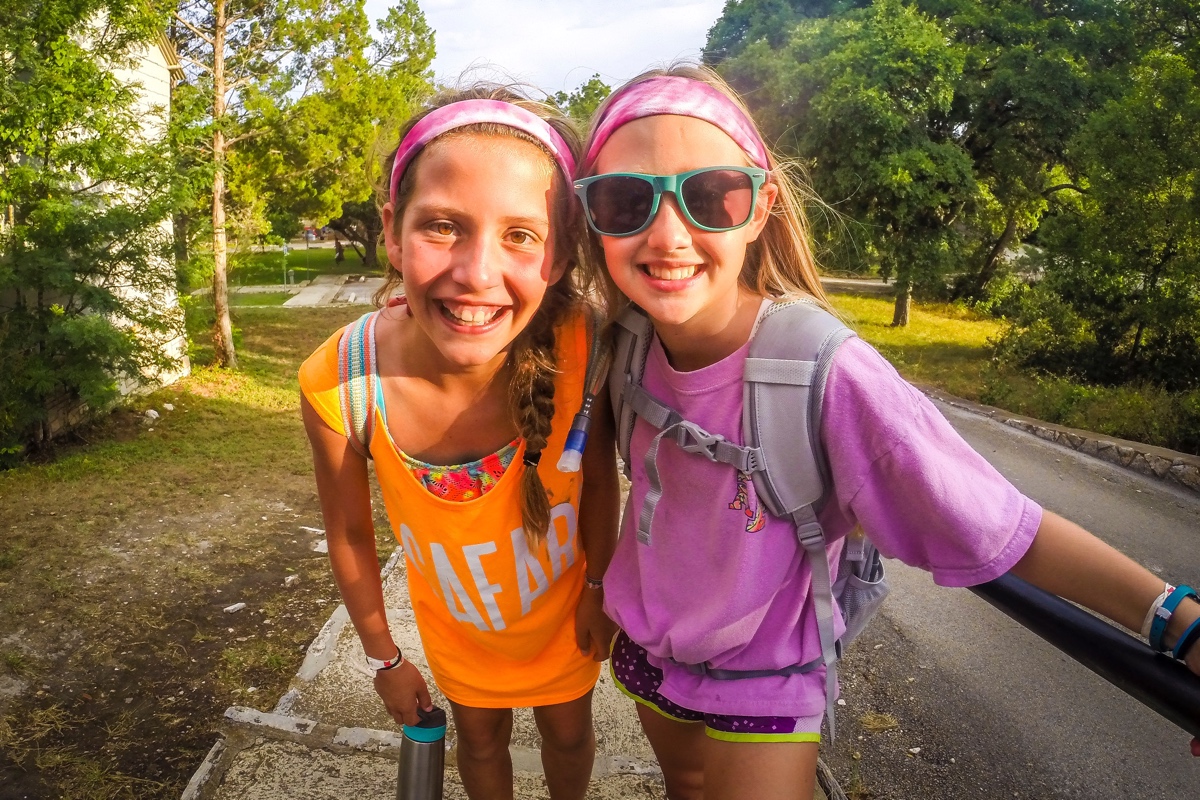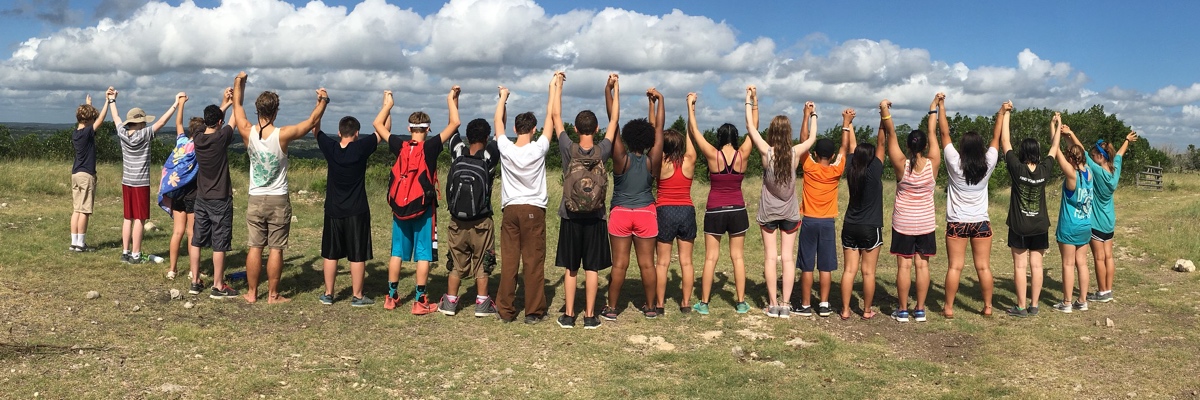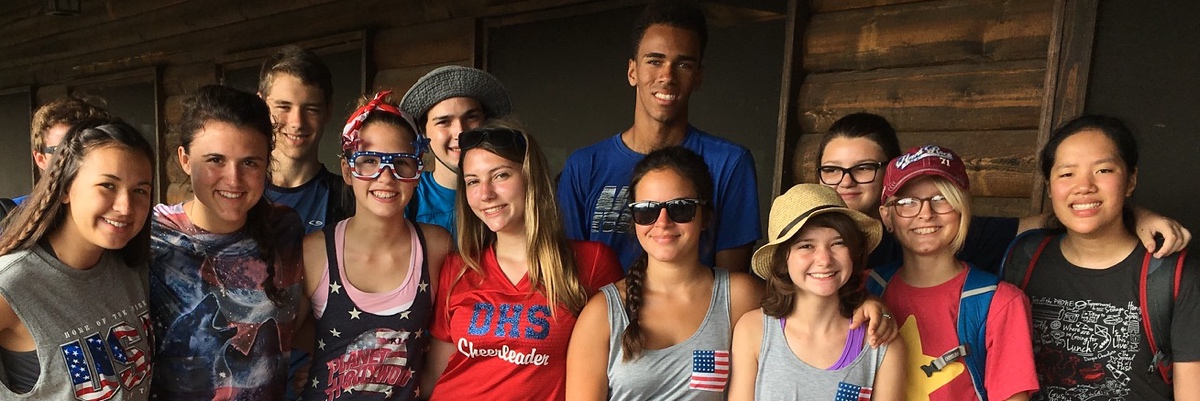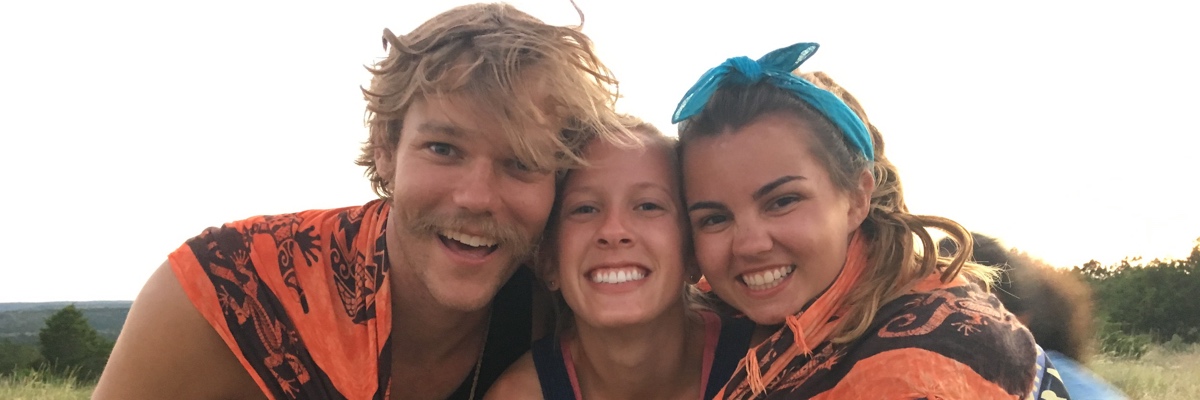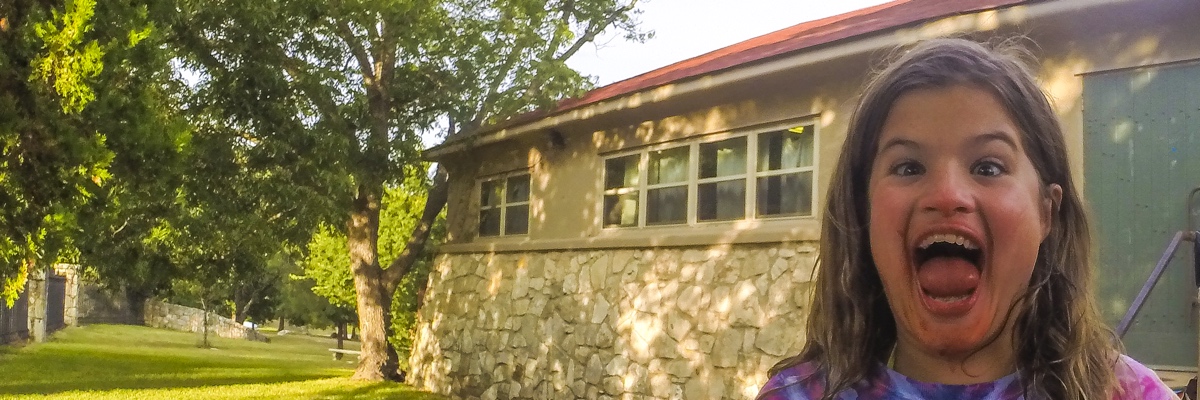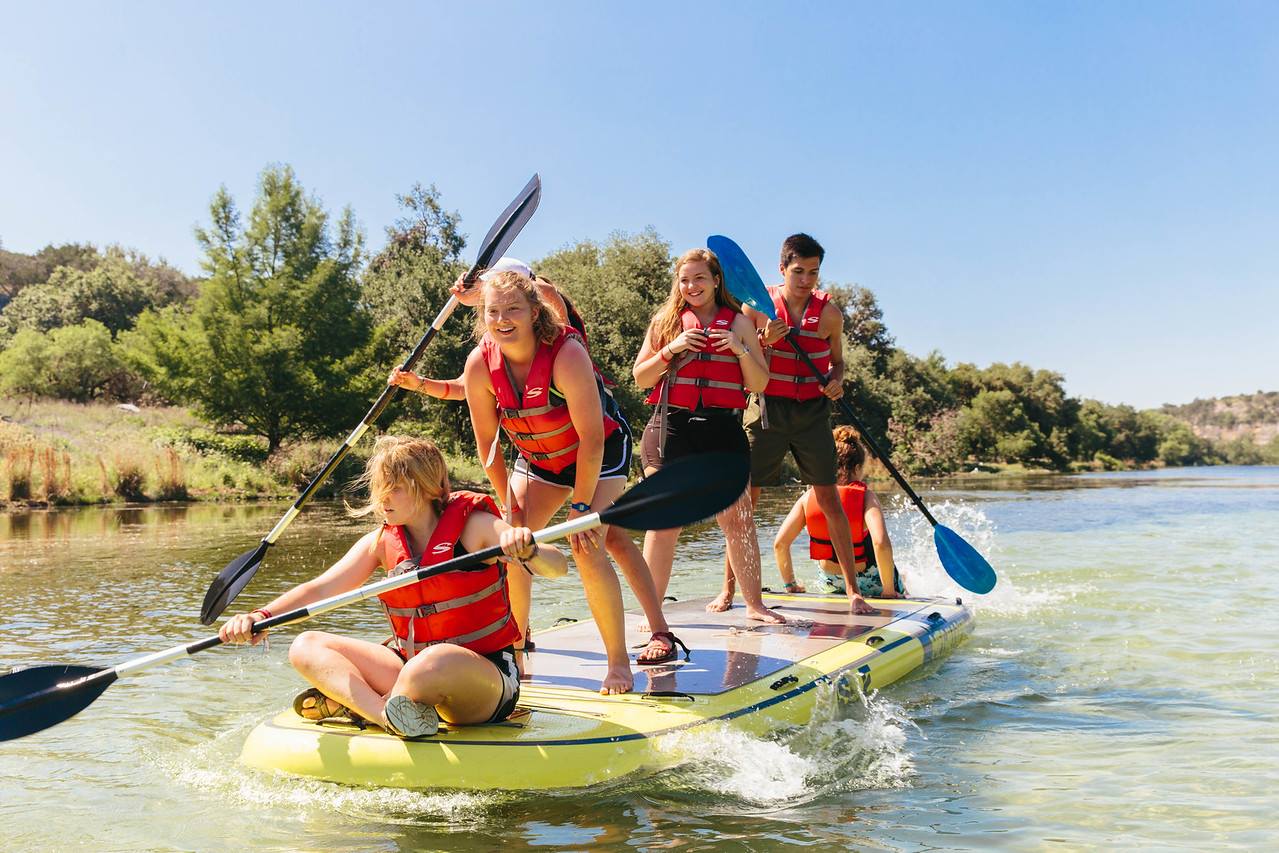The following is taken from an e-book I recently published on Kindle. I hope it helps provide some great help in the pursuit of better parenting…
How to Harness 22 Years of Kidventure Wisdom to Promote a Happier Family
In 1994, we set out to create a summer camp where the objective was to do more than just have just fun. We saw that though the power of summer camp, we could help kids develop strong character, build confidence, and provide the platform to succeed in life. This drive to make camp so much more, is what Kidventure is all about.
As both a 23-year camp professional and a parent of four children ranging from 3-19, I have seen many of the challenges that come with parenting. I have also seen and tested various approaches to those challenges. Sharing parenting skills, learning from each other, and striving to be better for our kids is something that I am passionate about. I hope these tidbits of wisdom help you in that journey.
Over the course of 22 years, we’ve developed a number of behavioral and motivational strategies (many of which have become KV traditions). The purpose of these specific tools is to help motivate, engage, and create a positive camp environment for kids and camp staff alike. With over 10,000 campers involved in our summer programs, having effective tools is essential!
We believe in these strategies so much that we would like to share them with all of our parents. Our hope is that you can apply them at home as we do in the camp setting. They can be altered and modified in many ways, but each has proven to foster positive behavior and positive outcomes. And while being a parent and being a counselor may not be exactly alike, the goals for both are very similar. Creating an environment where others are valued and respected through our actions and words is one of the foundations of any strong camp program and any solid family.
5 Essential Strategies
In this document, I have outlined our 5 Essential Strategies. For each, I have illustrated how they work and apply in the Kidventure Camp setting. I follow that up with a section called ‘Bring it Home’. There, you’ll find ways in which you can apply that specific strategy in the home environment for your family. Like camp, no one approach is the end all be all for creating harmony and balance. It is consistency and our day in and day out example that will create the family environment you seek. The goal of this booklet is to help provide a broader ‘tool chest’ in the quest to raise great kids and allow for you a little more sanity. As the old saying goes, ‘it takes a village to raise a child’, and we’re happy to be a part. We hope you can benefit from our strategies, and best of luck!
Strategy #1: The 3 R’s
Ask just about any Kidventure Camper from 3 years old to 14 what the three R’s are and they’ll say it all begins and ends with respect. At Kidventure, we only have three written rules. That’s it. Any action (positive or negative) will fall under one of these:
1. Respect Yourself
2. Respect Others
3. Respect Your Surroundings
Every Monday morning at camp, we cover these important rules. We ask kids to give examples of each and even use skits to illustrate their meaning. The 3 R’s are even displayed on a large red banner as a reminder for all to see.
Respecting yourself is all about how you treat and take care of yourself. It can be as simple as making sure you tie your shoes to ensuring you keep yourself safe from harm. Respecting yourself helps teach personal responsibility and improves self-esteem.
Respecting others should involve treating others kindly, helping friends in need, and never hurting others with our words or actions. We teach our campers to extend that respect to all other people, no matter who they are.
Respecting your surroundings has a lot to do with cleaning up after ourselves, taking responsibility for our environment and the things that surround us. At camp, some of the ways we respect our surroundings involve taking care of our own trash, putting back camp equipment and supplies, and even helping others do the same.
Bring it Home
With home, school, and sports, there can be a ton of rules. Often times it’s hard for kids to keep up with so many specific rules. Keeping it simple and limiting it to the 3 R’s allow kids to keep focused. Talk about what it means in your family to follow the 3 R’s. Furthermore, following only three general, but important rules, allows a kid to learn that respect is not just for sometimes – it is always relevant. Praise your kids when they follow them and give them a red ticket for doing so (see our next strategy)!
Strategy #2: Red Tickets
As long as Kidventure has been running camp, we’ve been handing out red tickets. Perhaps they have ended up in your washing machine and surely you’ve heard about the ticket drawing at the end of each camp day. Nevertheless, the red ticket serves as a powerful tool for positive reinforcement and the rewarding of great behavior. So here’s how it works for us…
Every kid at camp has the opportunity to make great choices. It can be as simple as opening a door for someone, saying thank you, cleaning up after art, or cheering on your friends. When it happens, counselors will reward that camper with a red ticket. We will literally stop everything we are doing and recognize that camper for being great and present them with a red ticket. That significant act does two things; (1) it reinforces the great behavior for the one camper, and (2) motivates the many others who didn’t get a ticket to do likewise. You can get an unlimited number of tickets each day. The more tickets you earn, the greater chance you have of going to The Prize Box. Yes, the Prize Box!
At the end of each camp day, a certain number of red tickets are called out. If your camper’s ticket is called out, they get to come up and pick a prize out of the box. At camp, these are simple prizes, but the opportunity to visit that box among your peers and be recognized is powerful. Not everyone gets to visit the Prize Box, even if you earned a handful of tickets. This is important in maximizing the continued fervor for the system. It is highly effective, as it promotes positive behavior and is essential for creating the environment Kidventure is known for.
Bring it Home
Many of our camp parents utilize this system and it can be altered a number of ways, but here is the simple version for using red tickets at home.
Sit down with the kids let them know that you’re going to use the red tickets (they will already be excited having used them at camp). Have them share all of the things they believe they could be awarded a ticket for like making their bed, being kind to each other, helping do the dishes, or completing homework without being told to do so! Finally, create your own prize box! Stuff unmarked envelops with rewards like a movie or ice cream, put in stickers or bouncy balls, whatever you want. Visit the prize box on a Friday and keep awarding them tickets for doing great things. You’ll be promoting good behavior and decisions, but you’ll also be creating a more positive and fulfilling environment for kids and parents alike.
Strategy #3: Bandana Contract
At Kidventure overnight camp each year, we create a contract with each camper and as a ‘camp family’. At the beginning of each session, counselors present a white bandana to our kids. Under the stars or next to a campfire, we ask our campers to come up with goals or expectations that each has for themselves. It might be to conquer their fear of heights, make new friends, or just try something new they have never done before. Each of the goals proposed by the kids is written on the bandana with a Sharpie. Once all goals are logged, campers must sign the bandana, thus signing the ‘contract’. The bandana now serves as a tangible reminder of their aspirations for the camp week and is carried or worn by someone throughout camp, changing hands constantly all week long.
On the final evening of camp, counselors and campers open up the bandana and review all the goals the kids laid out on opening day. Did we meet our goals? How did that make us feel? What did we accomplish? The practice has been a powerful tool to keep kids focused on their goals and as a reminder of how much we can achieve when we set our mind to it.
Bring it Home
Begin each school semester with a bandana contract. Allow your kids to set goals for themselves. Perhaps it is good grades, playing a new sport, or keeping their room clean, but allow them to set their own goals and expectations. Then have them sign it and take ownership of it. You can even tie it to their backpack or keep it prominent in the kitchen. At the end of the semester, review those goals and discuss how they felt and what they did or did not accomplish. Repeat the next semester with a new bandana! The simple act of creating and owning their goals will build confidence, awareness and a great sense of responsibility.
Strategy #4: Play Together
At camp, a counselor who sits on the sidelines while kids play is half a counselor. What most kids cherish about camp is the play and interaction WITH their counselor. It enriches their experience and provides them an even greater opportunity to grow from the example of an adult. The same exact thing applies to you as a parent.
Bring it Home
Each week, set aside time to play with your kids. Get out in the yard and ask them to teach you camp games like Fruit Cocktail, Nuke-em, or Splat. Go inside and get your Hide and Go Seek skills back in shape. Pull out all the sheets and build a fort. It doesn’t really matter. What matters is that you play with them. What matters is that you are engaged in something that takes place in their domain, one of play, laughter and fun. In doing so, they recognize you value the importance of being a kid. You’ll probably have a great time in the process, too!
Strategy #5: Unpacking From Camp
In the literal sense, unpacking is something we do after we return from camp. We take all of the things including care package items, dirty laundry, art projects, notes from family and we put them away. This process naturally reminds us of our time at camp. It rekindles memories of a day on the river or brings out an emotion we felt with friends.
At Kidventure, we also figuratively unpack at the end of each camp day. Usually in smaller groups, we find time to talk about our camp day and what impacted us. We chat about our ‘Apples’ (the things we loved about the day) and our ‘Onions’ (those not so pleasant). We share our successes, we work through our fears, and we celebrate that each of us is similar in both regards.
Sitting with a group of older kids just this summer, I witnessed a camper open up about her life at camp and at home. She shared deep emotions and fears with her fellow campers while trusting in their presence. Then, I watched as every other camper moved to her side to support and console her (with no prompting from counselors). The opportunity to create that kind of dialogue fostered this profound opportunity to support and heal.
This unpacking for our campers reinforces the great and allows an opportunity to address our challenges, and is essential in helping kids navigate the world of emotions and for growing strong. For Kidventure, it is an essential part of the camp process.
Bring it Home
Find time to unpack with your kids. For my family, dinner is the time we find most conducive to this process. However, taking an evening walk or lounging bedside are all great alternatives. The point here is to create a regular time to share. There can be no distractions including the TV or screens. Turn your phones off and tune in to one another.
It is important when unpacking that you allow your kids to drive conversation. Begin with asking everyone what their ‘Apple’ was of the day and then an ‘Onion’. When prompting discussion, ask more specific questions like, “What did you do today that you wish you could do every day?” or “Was there something that happened today that made you feel proud?”
If you’ve created a Bandana Contract (#3), ask your kids if they worked on any of their goals or aspirations. Finally, don’t forget you! It is essential that you are as part of the process as your kids or our campers are. Every counselor shares their highs and lows at these ‘unpackings’, and it means more than you can imagine when they do.
In Conclusion
While your family’s routine might not involve zip-lining, mud wars, and GaGa Ball, summer camp and family share so many of the same ideals. As parents, we know that our job is one of the most challenging imaginable. We also know just how rewarding it is, too.
We hope some of our camp strategies can make things more rewarding in your own ‘camp’. We are both in this constant learning process. Our goals have and will always be to help raise kids to be happy and healthy. We are proud to be a part of your family’s life and thank you for being a part of ours.

